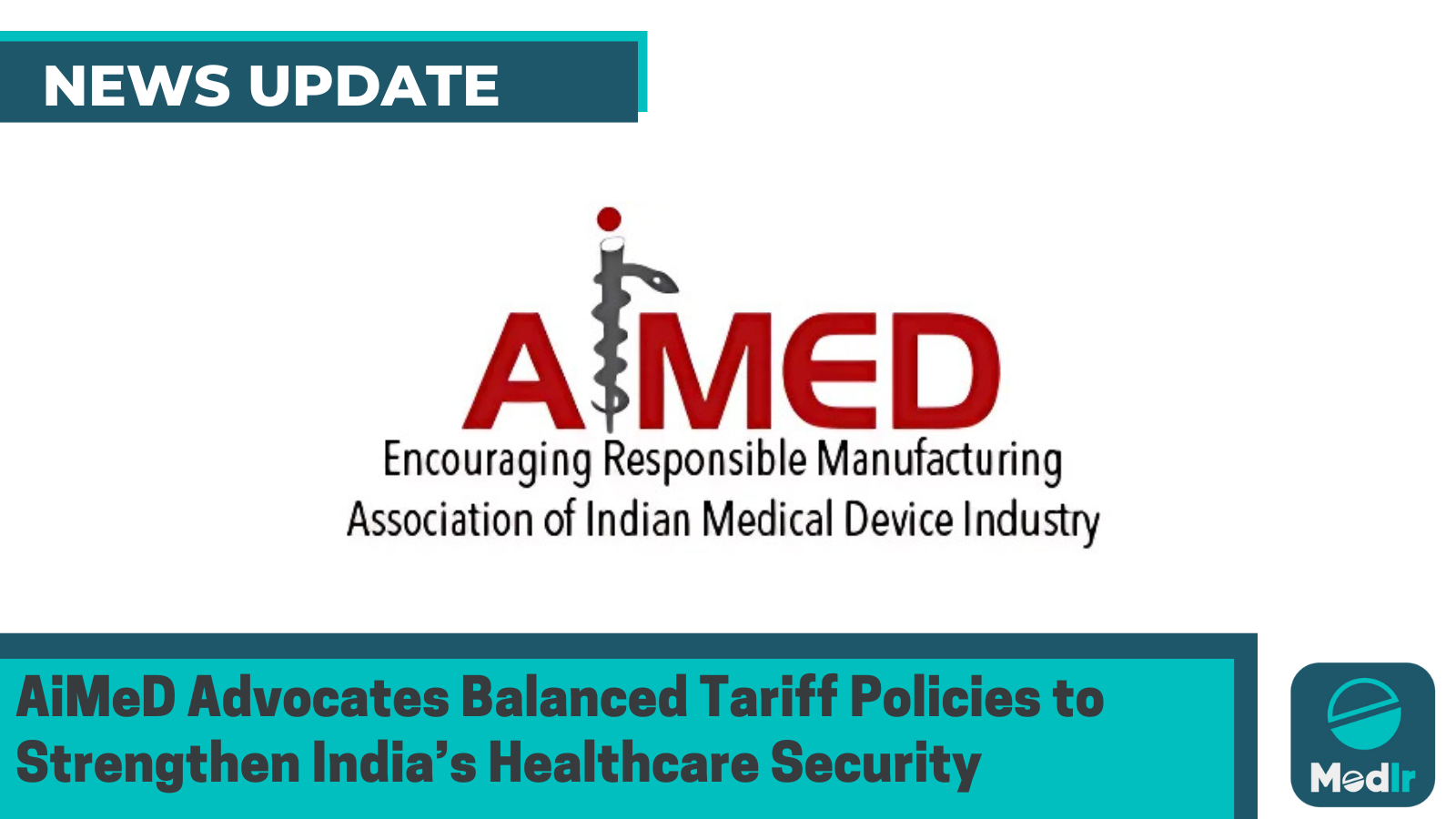AiMeD Advocates Balanced Tariff Policies to Strengthen India’s Healthcare Security
Written by Sirish Dixit
AiMeD calls for a reassessment of India's medical device tariffs and regulatory barriers to strengthen domestic manufacturing and healthcare security.

The Association of Indian Medical Device Industry (AiMeD) has urged the Indian government to reassess tariff structures and non-tariff barriers (NTBs) to enhance healthcare security and reduce dependence on medical device imports, which currently exceed 70%.
AiMeD has raised concerns about lowering import duties, emphasizing that many medical devices from the U.S. are already subject to minimal tariffs, with some categories at zero percent duty. The association argues that rather than tariff reductions, the real challenges for Indian manufacturers lie in high U.S. FDA registration fees and costly clinical trials, making market entry difficult.
To ensure fair trade, AiMeD proposes harmonizing tariff and regulatory costs between India and the U.S. The association also calls for stricter regulations on maximum retail prices (MRPs) and trade margins, especially for essential medical devices like stents and implants, to curb excessive markups by importers.
Drawing from global practices, AiMeD cited the U.S.'s 50% tariff on Chinese syringes and 25% duty on PPE as examples of protective measures. They suggest India adopt similar policies to safeguard its medical device industry and prepare for future health emergencies.
By balancing tariff policies and regulatory frameworks, AiMeD believes India can strengthen domestic manufacturing, reduce over-reliance on imports, and establish itself as a global leader in medical devices, ensuring long-term healthcare security.